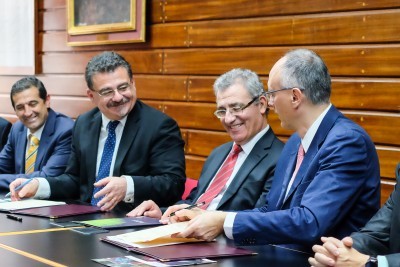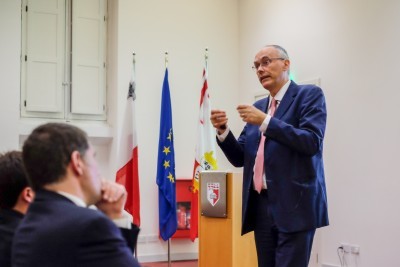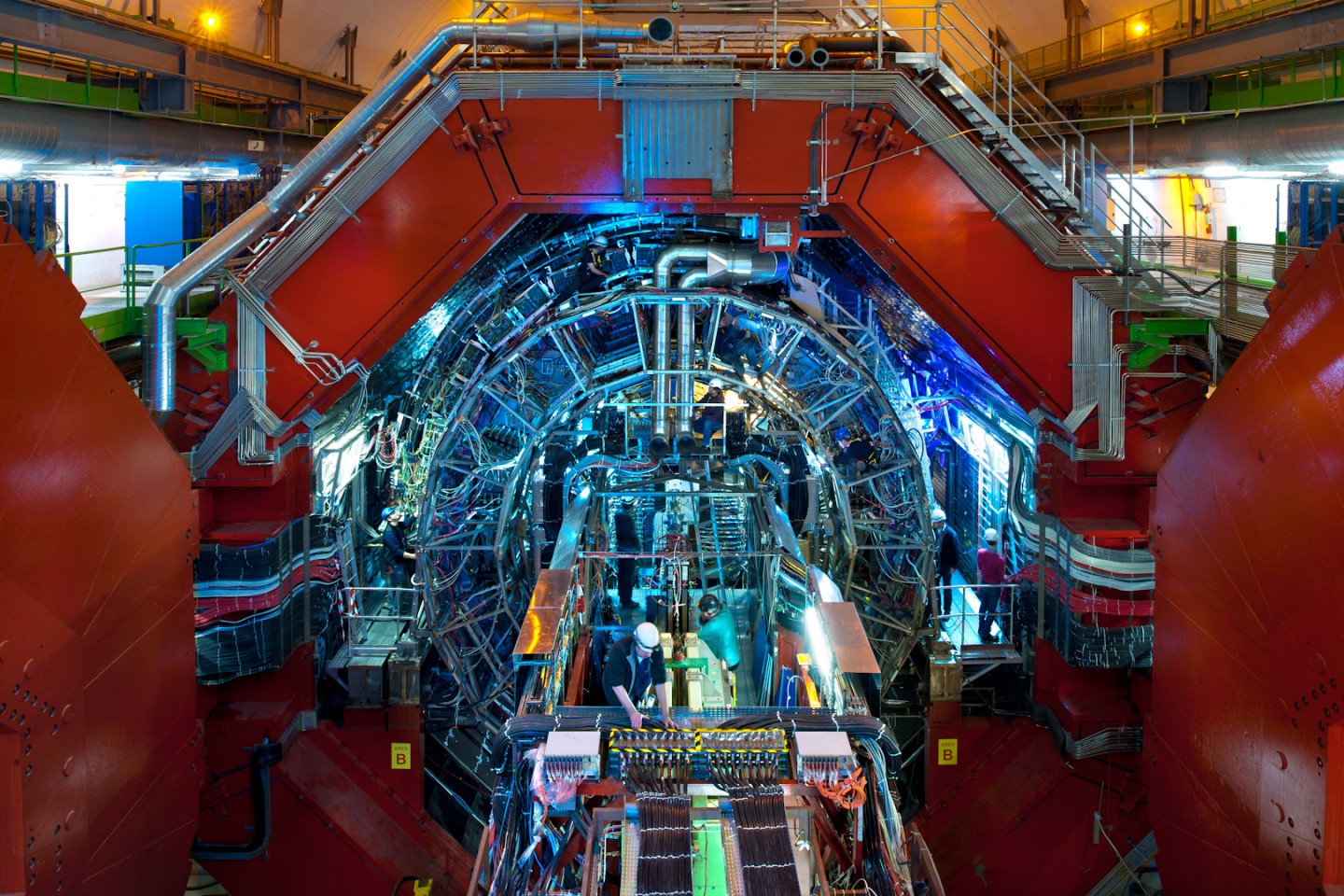Hidden 175 metres below the Franco-Swiss border lies a feat of human ingenuity: the Large Hadron Collider (LHC). The LHC is the largest scientific instrument ever constructed, providing mankind with the ability to begin unravelling the very fabric of the universe and everything around us. Now, following long established links with the European Organisation for Nuclear Research (CERN), University of Malta has signed a memorandum of understanding for its scientists’ collaborate with the latest set of experiments at the LHC. Words by Scott Wilcockson. Photography by Edward Duca.
Within the LHC particles smaller than an atom are accelerated until they approach the speed of light. Then they are smashed together in collisions 100,000 times hotter than the sun. In CERN’s current A Large Ion Collider Experiment (ALICE) experiments, scientists will recreate and study the quark-gluon plasma that existed milliseconds after the start of the Big Bang. This work will shed light on the strong force thats holds the basic particles of all atoms together and how this generates the majority of the mass of ordinary matter.

Experiments like this produce extraordinary amounts of data, around 100 terabytes per day which is enough to fill 20,000 DVDs. ALICE is now being upgraded through the O2 project which will enable the collection and processing of up to 1 terabyte of data per second for future experiments. This is where Malta comes in.
Dr Kevin Vella started the link between CERN and the University of Malta in 1999 with his work on ATLAS. This experiment helped discover the famous Higgs Boson (responsible for the mass of matter) in 2013. Now scientists and engineers at the University of Malta will help with the upgrading of the ALICE experiment to find ever more elusive particles.
The signing will benefit both the researchers involved and students. University Rector, Prof. Juanito Camilleri, said ‘[the agreement] enables students to be part of a world class organisation […] because CERN kindly recognises the quality of our university and its research.’ The ALICE Collaboration requires a colossal amount of manpower, including 1500 scientists from 37 countries, providing the perfect environment for nurturing collaborative science.

Spokesperson for the ALICE Collaboration, Dr Paolo Giubellino, said that ‘through collaboration […] we can make science and engineering available to everyone. We create new technology, we obtain the scientific results, but the most valuable point is that we train the next generation of scientists’.
The team will also be involved in the development of new software and equipment for the High Momentum Particle Identification detector and the LHC Interface Project. The ultimate aim of these projects is to greatly improve ALICE’s analytical power when observing particle collisions and enable real time analysis by scientists all over the world. Dissecting the universe will never have been so easy.
Minister for Education and Employment, Hon. Evarist Bartolo, said ‘we’ve never let our size limit us, or our limited resources, we have many enterprising people superseding what we’ve built in our past.’ Malta stands on the front-line, alongside a global family of scientists and engineers, in humanity’s exploration of the universe.
Team members from the University of Malta include Dr Vella, Dr Gianluca Valentino and Dr Keith Bugeja (Department of Computer Science), Dr Johann Briffa (Department of Communications and Computer Engineering), and Prof. Edward Gatt (Department of Micro- and Nanoelectronics).
For more on the work of University of Malta scientists at CERN: Crash Testing: The Largest Experiment on Earth and Protecting the Worlds Largest Experiment





Comments are closed for this article!